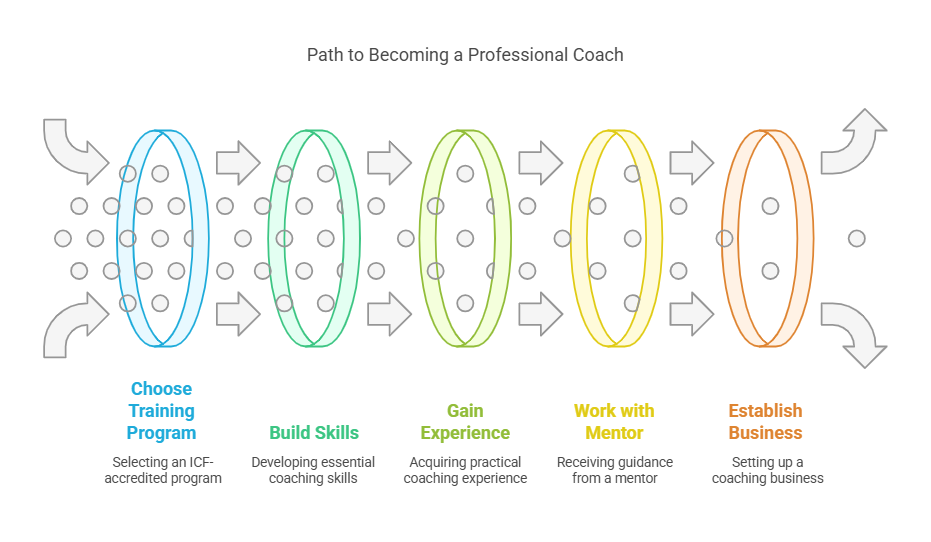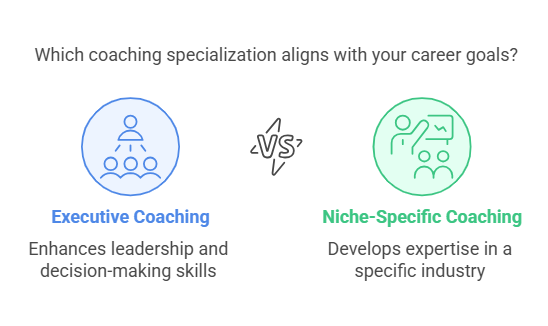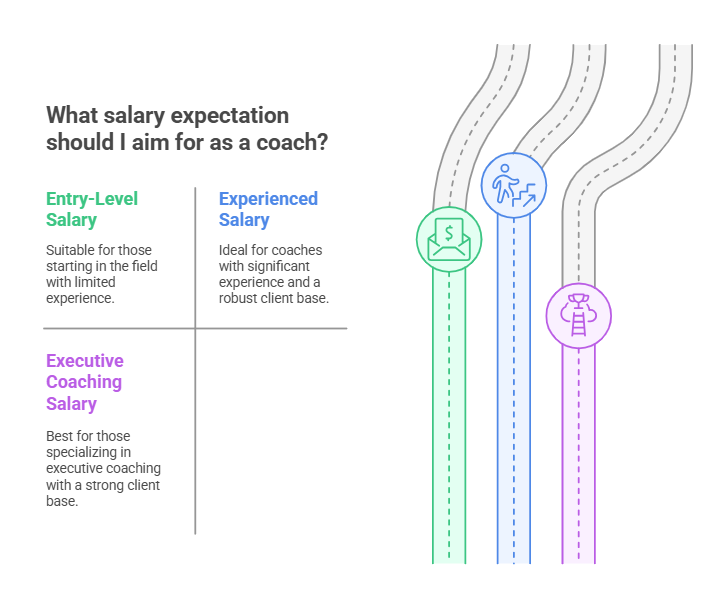How to Become a Professional Coach: Your Essential Step-by-Step Guide
Coaching is a profession focused on guiding individuals, teams, and organizations toward achieving their goals and improving performance. Becoming a professional coach can be both personally fulfilling and financially rewarding. Professional coaches operate in various fields, including executive coaching, leadership coaching, and industry-specific business coaching.

Understanding Coaching Certification
Earning a coaching certification is a key step toward establishing credibility in the field. The International Coaching Federation (ICF) is widely recognized as the gold standard in the industry, offering certifications such as Associate Certified Coach (ACC), Professional Certified Coach (PCC), and Master Certified Coach (MCC). Certification validates a coach’s expertise and enhances professional opportunities. For those interested in higher-level programs, Top Executive Coaching Certification Programs can further refine a coach's skills, preparing them for leadership roles. Additionally, you might wonder, Can I Be a Health Coach Without a Degree? The answer is yes, as many coaching programs do not require a degree, but certification remains a valuable asset for building credibility.
Step-by-Step Guide to Becoming a Professional Coach
1. Choosing the Right Coach Training Program
Selecting a training program accredited by the ICF is crucial. Look for programs that provide in-depth training, mentor coaching, and practical experience. Consider the program’s reputation, faculty expertise, and the success of its graduates. A well-structured program should align with the ICF’s Core Competencies of a Coach.
2. Building Coaching Skills and Knowledge
Developing coaching skills requires ongoing learning and practice. Studying coaching techniques, improving emotional intelligence, and refining communication skills are essential. Staying updated with best practices in the profession will set a strong foundation for long-term success.
3. Gaining Practical Experience
Real-world coaching experience is vital for honing skills. Volunteering, participating in mentorship programs, and working with practice clients can help build confidence. Engaging with a coaching community or partnering with a coaching buddy provides valuable feedback and support.
4. Working with a Mentor Coach
Mentor coaching is a requirement for ICF certification and plays a key role in professional development. A certified mentor coach can provide guidance, help refine techniques, and support career growth. Regular sessions with a mentor coach can improve coaching effectiveness and increase confidence.
5. Establishing a Coaching Business
Launching a coaching business involves defining a niche, identifying a target market, and creating a marketing strategy. Developing an online presence through a website and social media is crucial for attracting clients. Additionally, obtaining liability insurance and registering the business can provide legal protection.

Exploring Specialized Coaching Fields
Executive Coaching
Executive coaching focuses on helping business leaders and top executives enhance their leadership skills and decision-making abilities. These coaches work with clients to navigate complex organizational challenges and drive performance improvements. Specialized training in executive coaching can further enhance credibility in this field.
Niche-Specific Business Coaching
Coaches who specialize in a specific industry or business area develop deep expertise, making them more valuable to clients. Whether it’s career coaching, health coaching, or financial coaching, obtaining additional credentials in a chosen niche can set a coach apart from the competition.

Career Advancement in Coaching
Professional coaching careers typically begin with obtaining certification and gaining hands-on experience. Advancing in the field may involve specializing in a particular area or earning higher-level certifications. Networking with other coaches and staying informed about industry developments can lead to greater opportunities.
Salary Expectations for Coaches
The earning potential for professional coaches varies widely. Entry-level coaches typically earn around $50,000 per year, while experienced coaches, especially in executive coaching, can make over $100,000 annually. Factors such as expertise, location, and client base influence earning potential.

Joining a Professional Coaching Community
Networking within professional coaching organizations like the ICF can provide valuable support, training, and career growth opportunities. Attending coaching conferences, participating in workshops, and joining online communities help coaches stay informed about trends and best practices.
Conclusion
Becoming a professional coach requires commitment, skill development, and business acumen. By following a structured approach—earning certification, gaining experience, and continuously learning—aspiring coaches can establish a thriving career. Staying connected with the coaching community and refining expertise ensures long-term success in this rewarding profession.
Six Less-Known Facts About Professional Coaching
ICF Certification Isn’t Mandatory: While obtaining an International Coaching Federation (ICF) credential can enhance a coach's credibility, it is not a legal requirement to practice coaching. Many successful coaches operate based on their experience and reputation.
innerlifeskills.comAI is Changing the Coaching Industry: Artificial Intelligence is increasingly integrated into coaching practices, offering tools for assessment and analysis. However, human coaches remain essential for providing personalized guidance that AI cannot replicate.
trainingjournal.comCorporate Coaching Demand is Rising: There is a growing trend of businesses investing in coaching services for employee development and leadership enhancement. Studies indicate that a significant percentage of Fortune 500 companies utilize executive coaches to improve managerial effectiveness.
thetimes.co.ukCoaching is a Multi-Billion Dollar Industry: The global coaching market is projected to reach approximately $20 billion by the end of 2024, reflecting a compound annual growth rate of around 6.7% from 2020.
international-coaching-solutions.comThere Are No Strict Educational Requirements: While backgrounds in psychology or business can be beneficial, there are no strict educational prerequisites to become a coach. Essential qualities include strong communication and problem-solving skills.
lifepurposeinstitute.comMost Coaches Work Remotely: The rise of online coaching platforms has enabled professionals to offer services remotely, reaching clients globally without geographic constraints.
markwideresearch.com
Frequently Asked Questions (FAQs)
-
No, but certification from the ICF or another recognized body increases credibility and career prospects.
-
It depends on the certification level. Entry-level certifications can take six months to a year, while advanced credentials require additional experience and training.
-
Executive coaching, career coaching, health coaching, and financial coaching are among the most sought-after specialties.
-
Yes, but gaining practical experience through mentorship, volunteering, or practice coaching is recommended to build confidence and expertise.
-
Coaching rates vary widely. Beginner coaches may charge $50–$100 per session, while experienced executive coaches can command $500 or more per session.
Jasen Demhock is a certified health and life coach, passionate about empowering individuals to achieve holistic well-being and personal growth.
